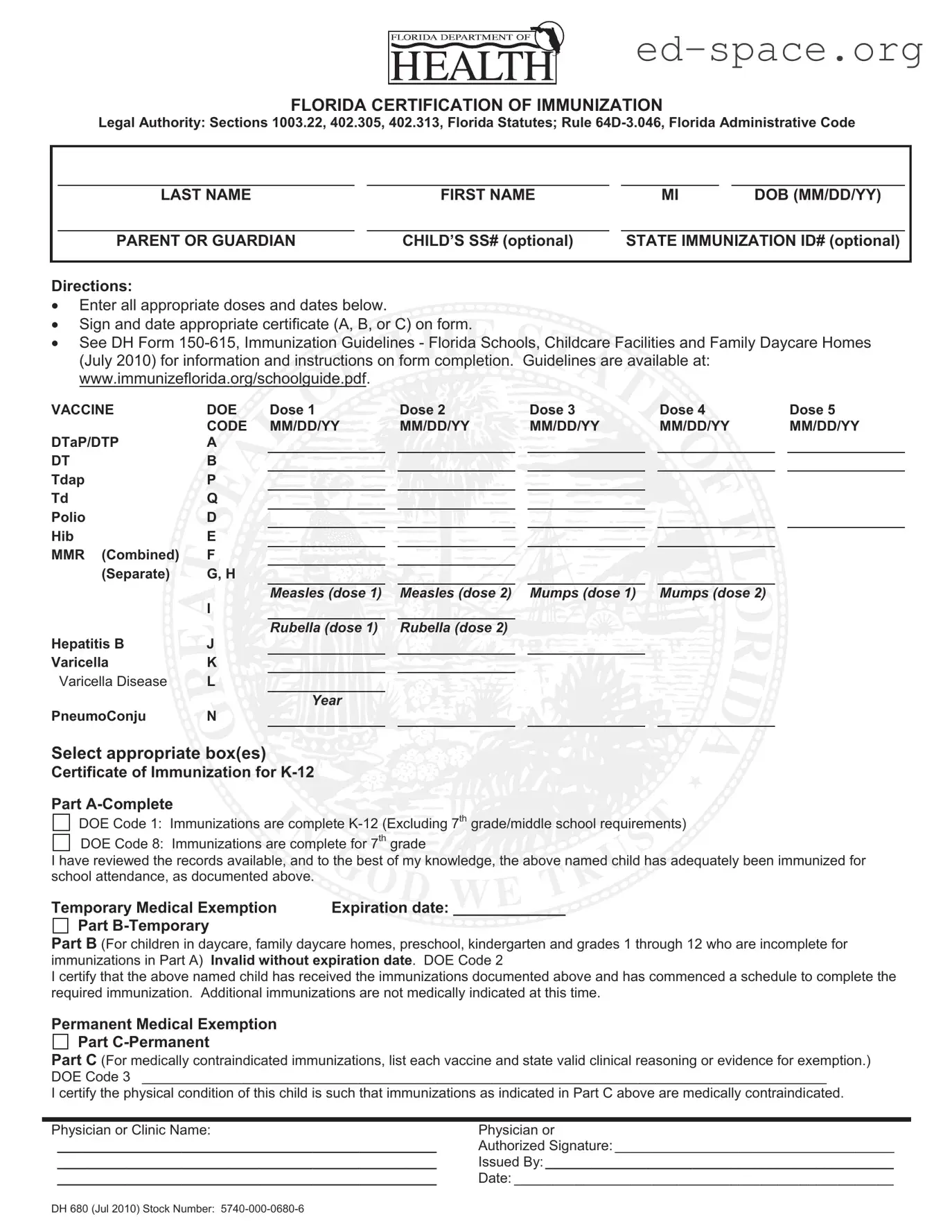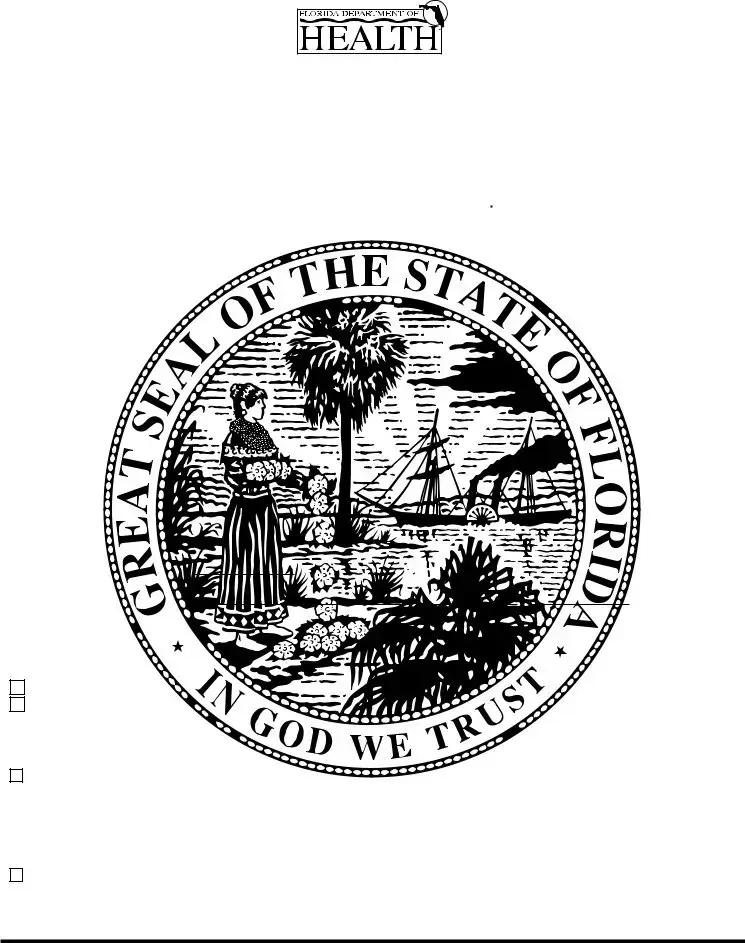DH 680 (Jul 2010) Stock Number: 5740-000-0680-6
FLORIDA CERTIFICATION OF IMMUNIZATION
Legal Authority: Sections 1003.22, 402.305, 402.313, Florida Statutes; Rule 64D-3.046, Florida Administrative Code
LAST NAME FIRST NAME MI DOB (MM/DD/YY)
PARENT OR GUARDIAN CHILD’S SS# (optional) STATE IMMUNIZATION ID# (optional)
Directions:
x Enter all appropriate doses and dates below.
x Sign and date appropriate certificate (A, B, or C) on form.
x See DH Form 150-615, Immunization Guidelines - Florida Schools, Childcare Facilities and Family Daycare Homes
(July 2010) for information and instructions on form completion. Guidelines are available at:
www.immunizeflorida.org/schoolguide.pdf
.
VACCINE DOE Dose 1 Dose 2 Dose 3 Dose 4 Dose 5
CODE MM/DD/YY MM/DD/YY MM/DD/YY MM/DD/YY MM/DD/YY
DTaP/DTP A
DT B
Tdap P
Td Q
Polio D
Hib E
MMR (Combined) F
(Separate) G, H
Measles (dose 1) Measles (dose 2) Mumps (dose 1) Mumps (dose 2)
I
Rubella (dose 1) Rubella (dose 2)
Hepatitis B J
Varicella K
Varicella Disease
L
Year
PneumoConju N
Select appropriate box(es)
Certificate of Immunization for K-12
Part A-Complete
DOE Code 1: Immunizations are complete K-12 (Excluding 7
th
grade/middle school requirements)
DOE Code 8: Immunizations are complete for 7
th
grade
I have reviewed the records available, and to the best of my knowledge, the above named child has adequately been immunized for
school attendance, as documented above.
Temporary Medical Exemption Expiration date: _____________
Part B-Temporary
Part B
(For children in daycare, family daycare homes, preschool, kindergarten and grades 1 through 12 who are incomplete for
immunizations in Part A) Invalid without expiration date. DOE Code 2
I certify that the above named child has received the immunizations documented above and has commenced a schedule to complete the
required immunization. Additional immunizations are not medically indicated at this time.
Permanent Medical Exemption
Part C-Permanent
Part C
(For medically contraindicated immunizations, list each vaccine and state valid clinical reasoning or evidence for exemption.)
DOE Code 3 ________________________________________________________________________________________
I certify the physical condition of this child is such that immunizations as indicated in Part C above are medically contraindicated.
Physician or Clinic Name: Physician or
_________________________________________________ Authorized Signature: ____________________________________
_________________________________________________ Issued By: _____________________________________________
_________________________________________________ Date: _________________________________________________

